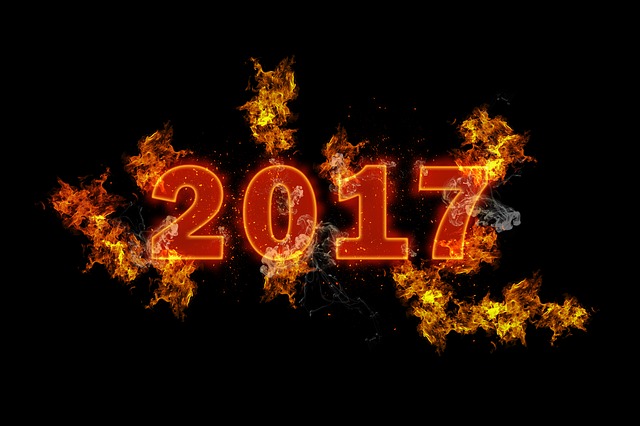
Five Important Lessons from “The Year of Better Decisions”
Last year around this time, I designated 2016 to be “The Year of Better Decisions”. The general principle was to stop making New Year’s resolutions, to stop making S.M.A.R.T. goals, and to stop setting deadlines for accomplishments. In other words, avoiding all the typical methods of improving one’s life at the start of the year. Did it work?
Well, perhaps. I am definitely not worse off after 2016. In fact, I’ve learned a few new things and have taken some new actions to improve my life. I think the lessons are the most valuable things i should share.
Choosing the better decision all the time is definitely a good idea and it worked well for me, when I used the technique. There are several problems that need to be addressed in order to make the system work. The first is straightforward.
Lesson 1: Know the right decision to make
All the time I walk into my neighborhood 7-11 after filling my car with gas. I usually head to the soda machine. There are some 16 different possible drinks I can select on the front console, not counting 3 different flavor syrups (cherry, lemon, vanilla) that can be added to the drink. It’s actually pretty easy to make the good decision and pick one of the diet sodas. (What’s harder is making an even better decision to get the unsweetened iced tea, with no artificial flavors, artificial sweeteners or carbonation. The best decision is probably a bottle of water.) It’s easy to understand one should not eat that Hostess cupcake, and instead get a pack of mixed nuts if I’m really hungry. Making the better decision is sometimes as simple as this.
Sometimes the situation is more complex, and the better decision is less obvious. It’s not so easy to decide how to address a more complex matter like rearranging your lifestyle to address your goals. Should I exercise early or late? What should I buy at the grocery store? When should I prepare my lunch for tomorrow? Should I interview for a new job, or stay where I’m at? Which are the better decisions? You need to figure out how to know which decisions are better than others.
One thing that helps is the concept of “act as if”. Career decisions? Act as if you’re the person who is successful at his career, even if you’re not there yet. Ask yourself, “What would a successful person do?” Fitness decisions? Act as if you’re the person who has their life tuned in to integrate their diet and exercise into their daily activities, even if you’re still struggling. Ask yourself, “How would a fit and healthy person organize their day?” If you have a mental model of how you want your life and activities to go, use that model to make your decisions until you’ve succeeded in integrating those decisions into your life. That model might be from your own experience, or you might be modeling the behavior of somebody you know. Both are acceptable. That is “acting as if”.
The other day at the gym, I had worked out on the elliptical trainers and my legs were getting pretty tired of the same repetitive motion. If the torturers of medieval times had powered engines, the treadmill and elliptical trainers might have made good torture devices. When my target time was up, I was ready to hop down off the foot pedals, but I asked myself a question: “Am I doing what would a fit person do?” The answer was “no”. A fit person would hold out beyond the time they wanted to quit, and stretch their abilities. The better decision was to hang in there just one more full minute. I acted as if I was a fit person for that decision, in that moment. “Act as if” can be a valuable tool for making better decisions.
A guy doesn’t always know the better decision; he simply doesn’t have enough information to to either choose the right decision or even to act “as if”. Maybe he doesn’t have role model to work from. What then?
Decisions can get even more complex. Looking at my retirement account, I estimate I can retire at the age of about 87. How do I manage those investments to speed that up a bit? The better decision is not obvious, nor does an “act as if” scenario help.
Maybe a guy doesn’t have a mental model of the better behavior. Even worse, maybe his model is just wrong. There’s the problem. Making the better decision assumes one knows the better decision. What does a person do when the better decision is not obvious? Simple. Ask yourself this question, “What would a person who doesn’t know something do?” That answer should be obvious; the person looks for help! The internet is a treasure trove of knowledge, and there are people out there who would gladly share their experiences. There are even support groups, and Meet-Ups that address what one needs to know. Go get the knowledge, or go get the help! Know when to ask for help.
Lesson 4: Cultivate awareness of the present
One of the key factors to the year of better decisions was simply knowing when i was making a decision. How does a guy do this? The key to this is to “be in the moment”, to “be present” or be “mindful”. Yes, those are some catchphrases you hear when people talk about meditation and spirituality. What do they mean?
The fact that they are catchphrases is a good thing. “Be in the moment” and “be present” are bandied about so much it’s easy to go out and get some help. It’s pretty easy to search the internet and find thousands of opinions on what they mean, like
this one. Or you can just read my opinion on it.
You see, we all have a tendency to retreat inside our heads while our body does really mundane things and we’re unaware that we perform them. That sounds scary, but it’s not that bad. For example, every morning I leave the house and drive to work. Every morning I get a block away from my house and I can’t remember if the garage door is closed or not. (My garage door has nasty tendency to get part way closed, then reopen, as if the sensor beam was interrupted.) I retreated inside my head and thought about other things when I should have been observing the garage door. Once I started the routine process of prepping the car, backing out, and pushing the button on the remote, I let that process go on automatic while my mind went elsewhere. I was totally unaware of the moment of observing the garage door being closed, and the decision to drive off. This is what happens when you’re not in the moment, or not aware of the present. You don’t know what decisions you are making automatically. Ideally you can observe your sensations, perceptions, thoughts and experiences and be aware of yourself and your decisions.
There are plenty of resources available online for cultivating awareness, or being mindful,
like this one I picked at random. I suggest reading up on this topic and finding some exercises you feel comfortable doing. It’s pretty important to be mindful if you want to make better decisions, and to do so consistently.
Lesson 5: Reinforce Good Behavior
The 2016 football season just ended recently with the 2017,
Super Bowl LI (51). While watching the players throughout the end of season playoffs, I noticed something interesting. Every single accomplishment, from a good tackle to a full-fledged sack, from a 10 yard reception to an end zone reception, was accompanied by some sort of personal celebration. A celebration might range from a relatively simple fist pump, a chest bump with another player, or an elaborate end-zone dance. Champion football players are masters of the on-field celebration.
But why? Aren’t they paid to tackle, catch and score points? They’re just doing their jobs. After all, I don’t celebrate getting my presentation done on time. There are no fist pumps and exclamations to celebrate filling out my time sheet correctly.
Maybe there should be.
I went to the gym today and squeezed in a 20 minute workout right before closing time. I made a good decision. On the other hand, I didn’t celebrate getting some exercise and beating the closing time. Nope. I just hopped in the car and went home. How enthusiastic do you think I’ll be next time? Probably not very much, which is my usual state. It’s hard to be enthusiastic about any behavior if there’s no positive feedback. It’s especially difficult for behavior that you need to repeat habitually.
BJ Fogg, a professor at Stanford University has developed a system he calls
Tiny Habits. I won’t delve into the concepts here, but I do highly recommend reading up on Tiny Habits. Professor Fogg emphasizes the necessity to give yourself some form of positive reinforcement for successfully completing a habit. Since the habits are tiny, the reinforcement can be small too. A simple fist pump, or an “attaboy” said to yourself will remind you that you did something positive. Any way you can figuratively pat yourself on the back for making a good decision is a good thing. You will be more likely to repeat making good decisions if you give yourself positive reinforcement.
Summary
My year of good decisions has been extended into 2017. I’ve learned 5 important lessons to help me make better decisions. Now you can try them too.
Do you have any additional suggestions on making good decisions? Add them to the comments below!
Related


